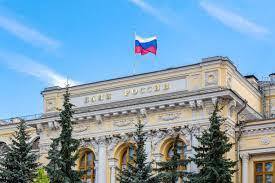After Visa and MasterCard announced that they were halting operations in Russia, several Russian banks looking for alternative means to push transactions.
According to Bloomberg, the move could allow Russians to make some international payments, as UnionPay operates in 180 countries and territories.
As a result of the West’s isolation, Russia may become increasingly reliant on China.
Backstory
Due to Russia’s aggressive invasion of Ukraine, Mastercard and Visa have halted operations in the country.
Mastercard credit cards will no longer work at Russian retailers or bank ATMs as a result of the latest economic blow to Russia.
Visa has also stated that all transactions will be stopped in the near future. Visa credit cards issued outside of Russia will no longer be accepted inside Russia.
Russia turning to china
After Visa and MasterCard announced that their operations in Russia would be suspended, many Russian banks claimed on Sunday that they would soon begin issuing cards using the Chinese UnionPay card operator’s system combined with Russia’s own Mir network.
Sberbank, Russia’s largest bank, as well as Alfa Bank and Tinkoff, made announcements about the transfer to UnionPay on Sunday.
Many enterprises have found it difficult, if not impossible, to source parts, make payments, and transfer items to and from Russia as a result of international sanctions, the loss of aircraft and transportation links due to the war, and financial limitations on SWIFT and capital controls.
Furthermore, the possibility for international consumer reaction against any company seen as supporting Vladimir Putin’s dictatorship has accelerated the exit of corporations from Russia.
Will they consider cryptocurrency
Much has been speculated about the possibility of Russia turning to cryptocurrencies as a way to circumvent sanctions imposed by the United States and its allied countries.
However, there has been no official announcement on the matter, and CZ itself assured that it was almost impossible for Russia to effectively use cryptocurrencies to keep its economy afloat:
“The truth is, crypto is too small for Russia. If we look at the crypto adoption today, there is probably about 3% of the global population with some kind of crypto exposure (i.e., owning some crypto). Of those, most only have a small percentage of their net worth in crypto. Less than 10% on average. So, there is probably only less than 0.3% of the global net worth in crypto today. This percentage applies equally to Russia.”











